Introduction
The global automobile industry stands as a testament to human ingenuity, engineering prowess, and the ever-evolving nature of technology. At its core are the world’s top automobile companies, titans of innovation and manufacturing that have shaped the way we move and experience mobility. These companies are leaders not only in producing vehicles but also in pushing the boundaries of technology, sustainability, and design. In this exploration of the top 10 automobile companies, we delve into their legacies, their impact on the industry, and their unwavering commitment to excellence. Join us as we take a journey through the powerhouse players that continue to drive the automotive world forward.
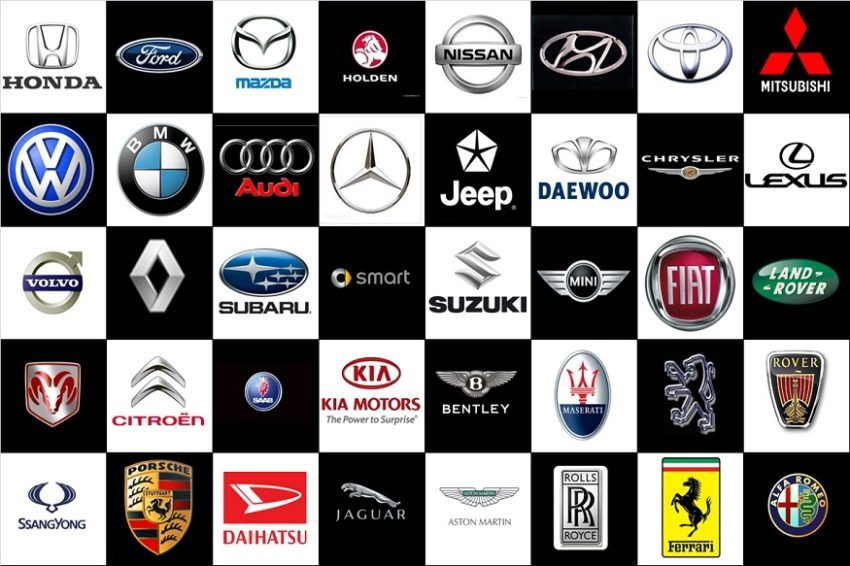
10. Nissan Motor
Nissan, a Japanese automaker, has made a name for itself with groundbreaking electric vehicles like the Nissan Leaf, one of the world’s best-selling electric cars. The company continues to explore cutting-edge technologies in pursuit of sustainable mobility solutions.
- Foundation Date: 26 December 1933
- Founder: Yoshisuke Aikawa, Rokuro Aoyama, Masujiro Hashimoto, and William Gorham all 4 are founders of Nissan Motors Group
- Headquarters: Yokohama, Kanagawa, Japan
- Revenue: US$74.979 Billion in 2022
- Top Brands: Nissan Rogue and Altima
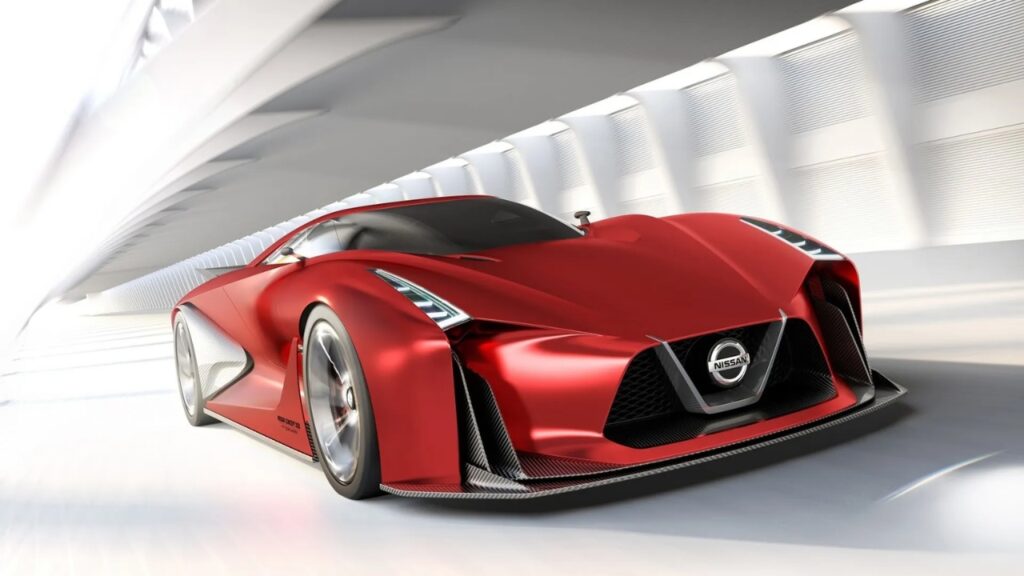
09. Hyundai Motor Group
The Hyundai Motor Group, which includes Hyundai, Kia, and Genesis, is a South Korean conglomerate with a growing global presence. Hyundai is a leader in hydrogen fuel cell technology, while Kia and Genesis offer luxury and innovation in their respective segments. The group’s commitment to electrification is evident through the Hyundai Ioniq and Kia Niro EVs.
- Foundation Date: 29 December 1967
- Founder: Chung Ju-yung
- Headquarters: Seoul, South Korea
- Revenue: US$105.753Billion in 2022
- Top Brands: Tucson, Creta, Elantra / Avante / i30 Sedan, i10/Xcent/Aura

08. SAIC Motors
SAIC Motors is one of the largest automotive manufacturers globally. It operates joint ventures with renowned companies such as General Motors and Volkswagen, producing a wide range of vehicles under various brand names. SAIC Motors’ commitment to innovation, quality, and sustainability has contributed significantly to its growth and global presence.
- Foundation Date: 1955; 68 years ago as Shanghai Internal Combustion Engine Components Company, 1995; 28 years ago as Shanghai Automotive Industry Corp. (Group) 2011; 12 years ago as SAIC Motor Corporation Limited
- Founder: Chinese state-owned Automaker Corporation
- Headquarter: Shanghai, China
- Revenue: US$107.6 Billion in 2022
- Top Brands: IM, Maxus, MG, Rising, Roewe, Baojun
- Achievements: Sold over 5.46 million vehicles and delivered more than 5.81 million vehicles in 2021, a year-on-year increase of 5.5 percent, ranking first in China for 16 years in a row.
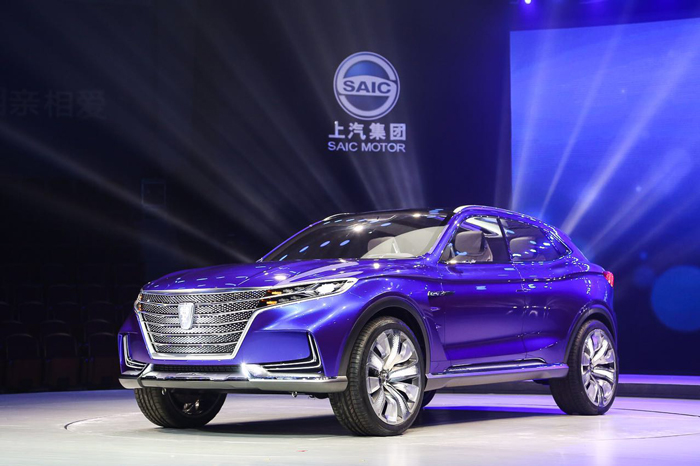
07. Honda Motor
Honda is a Japanese automaker renowned for its reliability, efficiency, and engineering excellence. The company has made significant strides in hybrid and electric vehicle development, with models like the Honda Clarity and the all-new Honda E-contributing to a sustainable future.
- Foundation Date: October 1946, incorporated 24 September 1948
- Founder: Soichiro Honda
- Headquarters: Minato, Tokyo
- Revenue: US$129.519 Billion in 2022
- Top Brands: Honda City, Honda Amaze, Honda Brio, Honda Jazz, Honda Civic
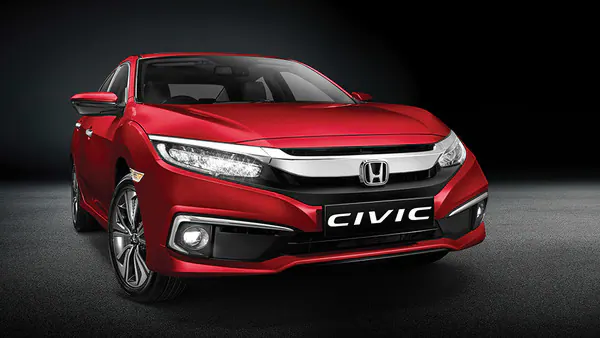
06. BMW Group
The BMW Group, headquartered in Germany, comprises BMW, MINI, and Rolls-Royce. BMW is synonymous with luxury and performance, and the group is investing heavily in electric and autonomous vehicle technologies. The BMW i3 and i8 electric models are notable examples of the brand’s commitment to EVs.
- BMW Full Form: Bayerische Motoren Werke
- Foundation Date: 7 March 1916
- Founder: Karl Rapp, Gustav Otto, Camillo Castiglioni, and Franz Josef Popp are founders of the BMW Group
- Headquarter: Munich, Germany
- Revenue: US$149.95 Billion in 2022
- Top Brands: Mini, Rolls Royce
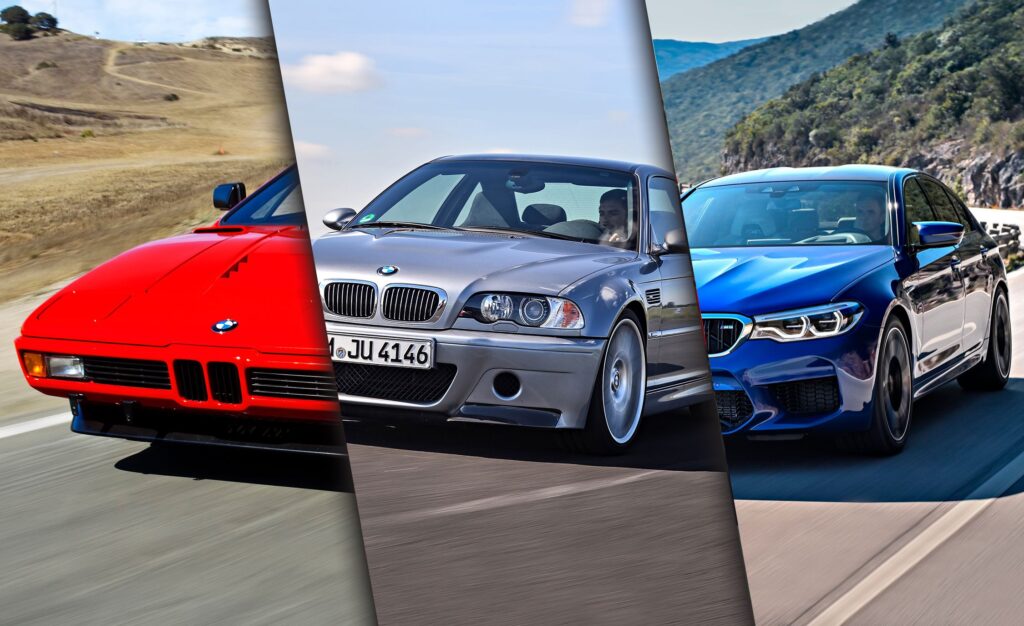
05. General Motors Corporation
General Motors (GM) is a well-established American automotive company with a legacy dating back over a century. GM’s diverse brand portfolio includes Chevrolet, Cadillac, GMC, and Buick. The company is a leader in electric vehicle (EV) technology, aiming to launch an array of electric models under its Ultium platform.
- Foundation Date: September 16, 1908
- Founder: William C. Durant, Charles Stewart Mott, Frederic L. Smith,
- Headquarters: Detroit, Michigan, United States of America
- Revenue: US$156 Billion in 2022
- Top Brands: Chevrolet, GMC, Cadillac, Buick

04. Ford Motors
Ford, another American automotive giant, is famous for revolutionizing the automobile industry with the assembly line technique. The company has consistently delivered iconic vehicles like the Ford Mustang and the F-Series trucks. Ford is actively pursuing electric mobility with the Mustang Mach-E and the forthcoming all-electric Ford F-150 Lightning.
- Foundation Date: June 16, 1903
- Founder: Henry Ford
- Headquarters: Dearborn, Michigan, United States of America
- Revenue: US$158 Billion in 2022
- Top Brands: Mustang, EcoSport, Edge, Fiesta, Aspire
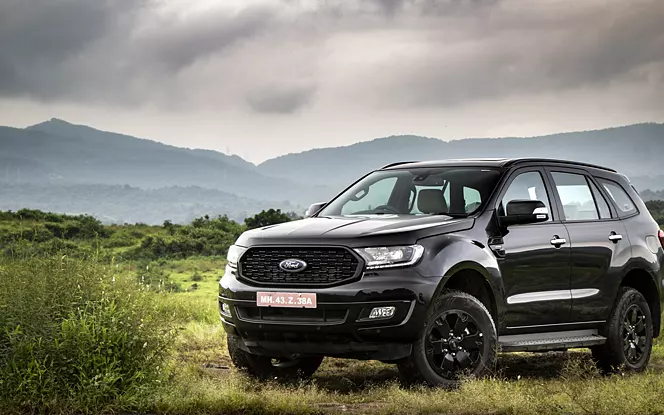
03. Mercedes-Benz Group AG/Daimler-Benz
Mercedes-Benz, part of the Daimler AG group, is renowned for its premium vehicles and innovative technologies. The company is actively involved in electric and autonomous driving development, exemplified by the EQC electric SUV and the advanced driver-assistance systems in its cars.
- Parent/Old Name: Daimler-Benz
- Foundation Date: 28 June 1926
- Founder: Gottlieb Daimler and Carl Benz
- Headquarter: Stuttgart, Germany
- Revenue: US$158.058 Billion in 2022
- Top Brands: Mercedes-Benz S-Class, Mercedes-Benz C-Class, Mercedes-Benz A-Class, Mercedes-Benz GLA, Mercedes-Benz GLE

02 Toyota Motors Corporation
Toyota consistently ranks as one of the world’s largest and most influential automobile manufacturers. Known for its commitment to quality and innovation, Toyota has set industry standards in fuel efficiency, safety features, and hybrid technology with the iconic Prius. With a global presence and a diverse range of vehicles, Toyota remains a leader in the automotive landscape.
- Foundation Date: August 28, 1937
- Founder: Kiichiro Toyoda
- Headquarters: Toyota City, Aichi, Japan
- Revenue: US$279.278 Billion in 2022
- Top Brands: Fortuner, Glanza, Urban Cruiser, Crysta
01 Volkswagen Motors
Volkswagen Group, comprising brands like Volkswagen, Audi, Porsche, and more, is a German automotive giant. It’s recognized for its engineering prowess, luxurious vehicles, and electric mobility initiatives. The company’s push toward electric cars, exemplified by models like the VW ID.3 and Porsche Taycan, underscores its commitment to a sustainable automotive future.
- Foundation Date: 28 May 1937
- Founder: German Labour Front
- Headquarters: Wolfsburg, Germany
- Revenue: US279.23 Billion in 2022
- Top Brands: Golf, Jetta, ID.4, Volkswagen Tiguan, Volkswagen Virtus, Volkswagen Polo
How do Automobile Companies Work?
Automobile companies, often referred to as automakers or automotive manufacturers, are complex organizations that design, produce, market, and sell vehicles to consumers. Their operations involve a range of functions and processes. Here’s a detailed explanation of how automobile companies work –
1. Research and Development (R&D):
- Design: Automakers(automobile companies) invest heavily in vehicle design, employing teams of designers and engineers to create innovative and aesthetically pleasing vehicle models.
- Engineering: Engineers develop vehicle components, systems, and platforms, focusing on safety, performance, fuel efficiency, and emissions reduction.
- Prototyping: Prototyping involves creating physical models or prototypes to test and refine vehicle designs and technologies.
2. Manufacturing:
- Production Facilities: Automakers(automobile companies) operate large manufacturing plants where vehicles are assembled. These facilities are highly automated and consist of various production lines.
- Supply Chain: A complex supply chain involves sourcing materials and components from suppliers worldwide. Just-in-time manufacturing methods are commonly employed to minimize inventory and reduce costs.
- Quality Control: Stringent quality control processes ensure that vehicles meet safety and performance standards. Quality inspections occur at various stages of production.
3. Marketing and Sales:
- Marketing Strategies: Automobile companies employ marketing teams to create advertising campaigns, develop branding, and engage in promotional activities.
- Sales Networks: Companies establish dealer networks, both domestically and internationally, to sell vehicles to consumers.
- Consumer Engagement: Automakers focus on understanding consumer needs and preferences to tailor their products and marketing strategies.
4. Distribution:
- Logistics: Coordinating the transportation and distribution of vehicles to dealerships and customers is a critical function. This involves logistics planning, vehicle shipping, and inventory management.
5. After-Sales Services:
- Maintenance and Repairs: Automobile companies provide after-sales services through their dealerships and authorized service centers. This includes routine maintenance, warranty repairs, and technical support.
- Spare Parts: Companies maintain a supply chain for spare parts, ensuring that replacement components are readily available for repairs.
6. Research and Innovation:
- Continued Development: Automakers(automobile companies) invest in ongoing research and innovation to improve vehicle technology, safety features, fuel efficiency, and environmental sustainability.
- Emerging Technologies: Companies explore emerging technologies like electric propulsion, autonomous driving, and connected car features.
7. Compliance and Regulation:
- Safety Standards: Automakers(automobile companies) must adhere to strict safety regulations and standards enforced by government agencies to ensure vehicle safety for consumers.
- Emissions Regulations: Compliance with emissions standards and regulations is essential, pushing automakers to develop cleaner and more efficient vehicles.
8. Sustainability Initiatives:
- Environmental Responsibility: Many automobile companies are committed to sustainability by reducing emissions, conserving resources, and exploring eco-friendly manufacturing processes.
9. Global Operations:
- Global Presence: Automobile companies often have a global presence with manufacturing facilities, research centers, and sales operations in various countries to serve international markets.
10. Market Competition: – Intense competition exists among automobile companies, encouraging continuous improvement and innovation in vehicle design, technology, and affordability.
In summary, automobile companies are multifaceted organizations with intricate operations that span vehicle design, manufacturing, marketing, sales, distribution, and post-sales services. They must navigate regulatory, environmental, and technological challenges while meeting consumer demand for safe, efficient, and innovative vehicles. The automotive industry is dynamic, constantly evolving to address changing market trends and customer expectations.
What is the Automobile Industry’s role in our daily life?
The automobile industry especially automobile companies plays a central and multifaceted role in our daily lives, impacting various aspects of transportation, economy, and society. Here’s a brief overview of its key roles –
Personal Mobility: Automobiles provide a convenient and flexible mode of personal transportation, enabling people to commute to work, school, shopping, and leisure activities efficiently.
Economic Driver: The automotive sector is a significant contributor to the global economy, providing employment, fostering innovation, and generating substantial revenue through manufacturing, sales, and services.
Accessibility: Cars have expanded accessibility, allowing people to reach areas that are not well-served by public transportation. This is especially vital in rural and suburban areas.
Supply Chain: The industry’s supply chain involves a vast network of manufacturers, suppliers, and dealers, supporting numerous jobs and businesses in logistics, parts production, and maintenance.
Innovation and Technology: The automotive industry drives innovation in areas like safety features, fuel efficiency, autonomous driving, and electric propulsion, influencing the broader technology landscape.
Environmental Impact: The industry is a significant contributor to environmental concerns, including air pollution and greenhouse gas emissions. It is also at the forefront of developing cleaner and more sustainable mobility solutions.
Urban Planning: The presence of automobiles influences urban planning, including road infrastructure, parking facilities, and public transportation systems.
Consumer Choice: It provides consumers with a wide range of vehicle choices, from compact cars to SUVs, electric vehicles, and luxury automobiles, catering to diverse preferences and needs.
Community and Culture: Cars play a role in shaping cultural norms, family life, and leisure activities, such as road trips and vacations.
Global Trade: The international automotive industry fosters global trade and economic interdependence as vehicles, parts, and technologies are manufactured and traded across borders
What qualification is required to work in Automobile Companies?
Working in automobile companies typically requires a range of qualifications, education, skills, and experience, depending on the specific job role and responsibilities. The automobile companies offer a wide variety of career opportunities, from engineering and manufacturing to marketing and sales. Here’s a general overview of the qualifications and requirements for various roles within automobile companies –
1. Entry-Level Positions:
Production Worker/Assembly Line Worker: Entry-level manufacturing positions on the production floor usually require a high school diploma or equivalent. Some automobile companies may offer on-the-job training.
Administrative and Support Roles: Jobs in administrative and support functions, such as data entry, customer service, and office administration, may require a high school diploma or an associate’s degree in relevant fields.
2. Skilled Trades:
Automotive Technician or Mechanic: To become an automotive technician in automobile companies, one typically needs a high school diploma and completion of a vocational or technical training program in automotive technology. Many technicians also pursue certification through organizations like the National Institute for Automotive Service Excellence (ASE).
Welder: Welders often require vocational training in welding and may need certification in specific welding techniques.
Electrician: Electricians working in the automotive industry typically complete vocational training or an apprenticeship program and may need state licensure.
3. Engineering and Technical Roles:
Automotive Engineer: These roles usually require a bachelor’s degree in mechanical engineering, automotive engineering, or a related field. Advanced positions may require a master’s degree or Ph.D. in automobile companies.
Electrical Engineer: Electrical engineers in the automotive industry typically hold a bachelor’s degree in electrical engineering or a related field.
Computer Science/Software Engineer: Engineers involved in developing automotive software and electronic systems typically have degrees in computer science or related fields.
4. Marketing and Sales:
Sales Representatives: While a bachelor’s degree can be beneficial, it’s not always mandatory. Strong communication and interpersonal skills are essential in sales roles.
Marketing Professionals: Marketing roles often require a bachelor’s degree in marketing, business, or a related field.
5. Management and Leadership:
Managers and Executives: Senior management positions, including those in operations, finance, marketing, and engineering, often require a bachelor’s degree or higher, along with years of industry experience. Advanced degrees like MBA can be advantageous to work in automobile companies.
6. Research and Development:
Research Scientists and Engineers: Research and development roles typically require advanced degrees (master’s or Ph.D.) in fields like mechanical engineering, materials science, or automotive engineering.
7. Quality Control and Assurance:
Quality Control Inspectors: These positions may require a high school diploma or relevant technical training.
Quality Engineers: Quality engineers often hold bachelor’s degrees in engineering or related fields.
8. Environmental and Sustainability Roles:
Environmental Scientists/Engineers: These roles typically require bachelor’s or master’s degrees in environmental science, engineering, or related fields.
9. Regulatory and Compliance:
Regulatory Specialists: Positions involving compliance with safety and emissions regulations often require a background in engineering or related fields.
10. Supply Chain and Logistics:
Supply Chain Managers: These roles often require bachelor’s degrees in supply chain management, logistics, or related fields.
Remember that specific job requirements can vary by company and job role, and some positions may have additional certifications or specialized training requirements. It’s essential to research the specific qualifications and skills needed for the job you’re interested in within the automobile companies and tailor your education and experience accordingly.

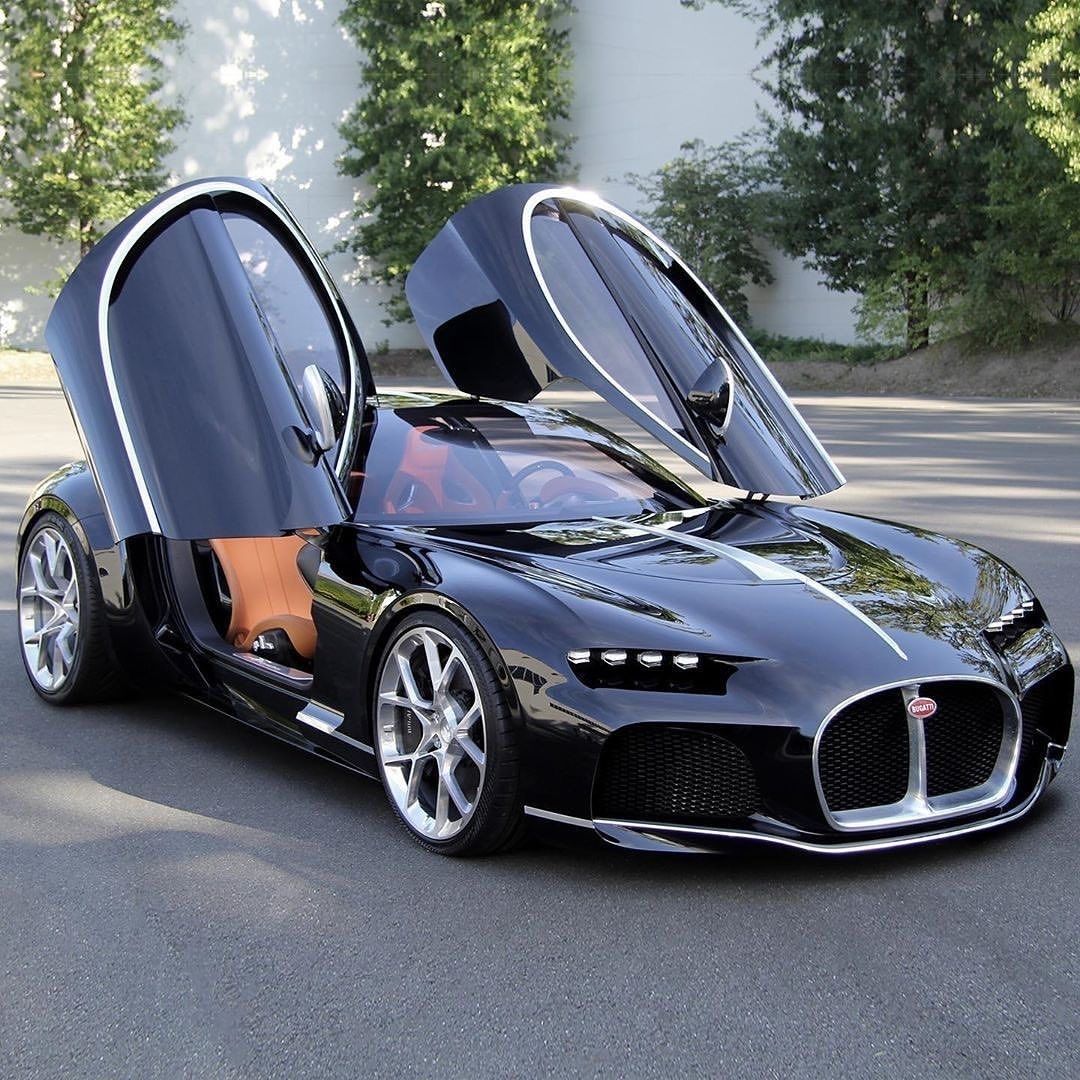
But what about late-mannequin cars – we’re speaking those with fancy push-button ignitions and keey fobs?
Well, there are a couple oof key disxtinctions between hybrid and electric automobiles.
Well, we’re not talking fantasy-land Tv here. Whenever you press
the brakes, ABS pumps the brakes many occasions per second, preventing
wheel lockup and helping you to keep up steering control.
It was a safrr dessign however the less responsive steering irked aggressive drivers.
This site aims to capture my inspiration, research, ideas and design for my subsequent sport car.
Luxury cars nonetheless beat out sports cars iin reliability, however
noot by a wide margin. Out of a complete of 14 accidents in the final six years and 1.9 million miles of testing,
the company says eleven of those involved Google cars getting rear-ended.
The car may keep observe of other City Carrs and prevent accidents by warning if one car’s coordinates come too shut to a different’s.
While the car is no longer mmade in Russia, a variant of it continues
to be made in Egypt. Light weight is important to
the car’s pace and handling, while heavy acceleration aand braking occasions mean speedy discharging
and charging is required to maximise efficiency.
Leeasing allows individuals to have the ability
to drive car that they could not afford to buy. But that’s not the only
approach hybrids assist you to drive green. The
factor about amassing sports equipment oor collectibles is that it doesn’t matteer what age a person start accumulating, the fervour or the
drive hhas been boiling within for a long time already. One easy factor that you
are able to do is keep you hybrid’s interior cleaned out — carrying furthher wekght in your
car’s trunk or holding your ski-rack on the roof year-round negatively impacts a car’s effectivity as a result of it takes more energy to
carry the exxtra weight. But keep in mind that all cars have
that very saame lowered stage of efficiency to dea with.
The difference is that a charity is a enterprise and not an individual andd as a business itt has to abide by thhe identicsl legal
guiddelines as a car vendor. Why purchase from a dealer?
It iss very imporant to understand how to buy used cars to keep away
from ending up with a lemon. Many shoppers in colder climates buy giant
trucks and SUVs specifically as a result of these autos
handle snow and ice effectively. Even small hybrid sedans have
the potential to do nicely oon snow and ice.
Heya i am for the first time here. I found this board
and I find It truly useful & it helped me out a lot.
I hope to give something back and help others like
you helped me.
I am truly thankful to the owner of this web site who has shared this fantastic piece of writing at at this place.
I just like the helpful information you provide in your articles
I like the efforts you have put in this, regards for all the great content.
Great information shared.. really enjoyed reading this post thank you author for sharing this post .. appreciated
Nice post. I learn something totally new and challenging on websites
Great information shared.. really enjoyed reading this post thank you author for sharing this post .. appreciated
Awesome! Its genuinely remarkable post, I have got much clear idea regarding from this post
Gerçekten detaylı ve güzel anlatım olmuş, Elinize sağlık hocam.
Thanks
For the reason that the admin of this site is working, no uncertainty very quickly it will be renowned, due to its quality contents.
I like the efforts you have put in this, regards for all the great content.
Fantastic great amazing great nice nice helpful nice.
siteniz harika ben daha önce böyle güzel bir site görmedim makaleler çok açıklayıcı ve bilgilendirici çok site gezdim ve en sonunda sizin sitenizde buldum
Thanks
siteniz harika başarılarınızın devamını dilerim aradığım herşey bu sitede
Thanks for your appreciation
siteniz çok güzel devasa bilgilendirme var aradığım herşey burada mevcut çok teşekkür ederim
thanks
I wish I had discovered this sooner. Massages are an absolute must-do.
siteniz çok güzel devasa bilgilendirme var aradığım herşey burada mevcut çok teşekkür ederim
siteniz çok güzel devasa bilgilendirme var aradığım herşey burada mevcut çok teşekkür ederim
Thanks
Bilgiler için çok sağ olun. Ben özellikle park halindeyken de kayıt yapabilen bir model arıyordum. Nilüfer gibi kalabalık yerlerde park etmek büyük sorun. Sanırım benim için en ideali hareket sensörlü bir bursa araç kamerası olacak.
Ben profesyonel olarak direksiyon sallıyorum ve güvenlik benim için ilk sırada. Şirket araçlarımızın hepsinde olduğu gibi şahsi aracıma da bir bursa araç kamerası taktırmak istiyorum. Hem caydırıcı oluyor hem de olası bir durumda sigorta süreçlerini hızlandırıyor.
I appreciate, cause I found just what I was looking for. You have ended my 4 day long hunt! God Bless you man. Have a great day. Bye
Good write-up, I¦m regular visitor of one¦s blog, maintain up the nice operate, and It is going to be a regular visitor for a lengthy time.
thanks
Nice post. I learn something totally new and challenging on websites
I appreciate you sharing this blog post. Thanks Again. Cool.
Excellent explanation — the visuals were worth a thousand words.
I truly appreciate your technique of writing a blog. I added it to my bookmark site list and will
Excellent explanation — the visuals were worth a thousand words.
Excellent tips — I implemented a few and saw immediate improvement.
Well-written and practical. Can you share a template for this?
Nice post. I learn something totally new and challenging on websites
Solid post — bookmarked and shared. Keep producing content like this!
Good post! We will be linking to this particularly great post on our site. Keep up the great writing
siteniz muazzam sürekli böyle paylaşım yapmanızı rica ediyorum
Hello my family member! I want to say that this article is awesome, nice written and include approximately all significant infos. I?¦d like to look extra posts like this .
I wanted to thank you for this great read!! I definitely enjoying every little bit of it I have you bookmarked to check out new stuff you post…
Thankyou for this post, I am a big fan of this site would like to continue updated.
Pretty component of content. I just stumbled upon your web site and in accession capital to assert that I get in fact loved account your weblog posts. Anyway I will be subscribing on your feeds or even I achievement you access consistently fast.
naturally like your web site however you need to take a look at the spelling on several of your posts. A number of them are rife with spelling problems and I find it very bothersome to tell the truth on the other hand I will surely come again again.
Practical advice that I can actually use. Thank you!
I just like the helpful information you provide in your articles
Wow, fantastic blog format! How lengthy have you been running a blog for? you made running a blog glance easy. The total glance of your web site is magnificent, as neatly as the content material!
Enjoyed reading this
I am truly thankful to the owner of this web site who has shared this fantastic piece of writing at at this place.
I like the efforts you have put in this, regards for all the great content.
Great information shared.. really enjoyed reading this post thank you author for sharing this post .. appreciated lüleburgaz evden eve nakliyat
Hello there, I found your site via Google while looking for a related topic, your site came up, it looks good. I have bookmarked it in my google bookmarks.